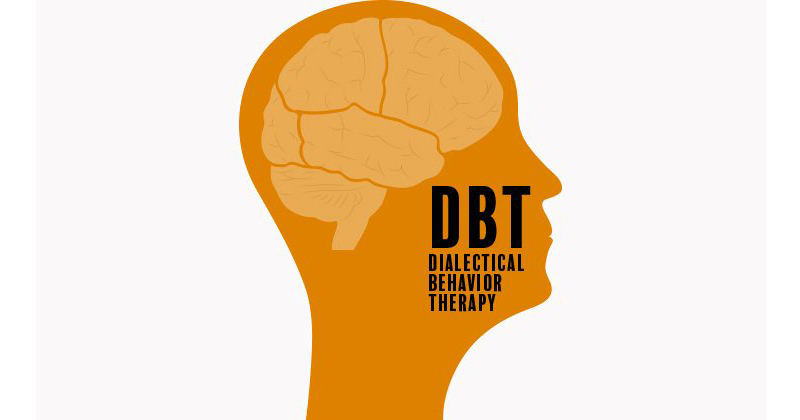Childhood Depression
Children have times when they feel “blue” or sad. Emotional fluctuations are normal, but if those feelings and behaviors last longer than two weeks, the child may have an affective disorder, like depression; children may go undiagnosed and untreated because parents and caregivers fail to recognize the signs of the depression.
Depression affects about 3-percent of U.S. children. The persistent sadness and symptoms can interfere with daily life interrupting school and social activities.
Children with depression often experience many of the same symptoms of depression as adolescents and adults. However, children may have a hard time expressing themselves about these feelings because of their limited emotional vocabulary.
Childhood depression is a serious, but treatable, mental health issue. Read on to learn more about the signs, symptoms, causes, and risks associated with childhood depression.
Warning signs a child may have depression
Warning signs of depression are emotions or changes that parents and caregivers can see for themselves. Children may not be sure how to express their feelings to you, or they may be unwilling to. These warning signs can occur in children with depression:
- Changes in behavior and temperament
- Sadness or low mood
- Increased or decreased sleep
- Low energy
- Increased or decreased appetite
- Feelings of hopelessness
- Feeling of worthlessness
- Irritability and anger
- Defiance
- Emotional or vocal outbursts
- Crying
- Persistent clinginess
- Social withdrawal
- Difficulty concentrating
- Decline in school performance
- Frequent expression of physical illness such as headaches or stomach aches
- Expressing negative thinking (self-critical comments or complaining)
- Talking about death or dying
- Thoughts of suicide
Warnings signs of suicide
Childhood depression can cause thoughts of suicide or suicidal behavior; in fact, suicide is the third leading cause of death in children ages 5 to 14.
If your child has been diagnosed with depression, or you suspect depression, watch for the warning signs of suicide, and get them immediate help:
- Multiple symptoms of depression
- Social isolation
- Increased problematic behavior
- Talking of suicide, death, or dying
- Talking about hopelessness or feelings of helplessness
- Frequent accidents
- Substance use or abuse
- Interest in weapons
What parents need to know about medication, therapy, and finding a good clinician
Getting treatment for depression can feel daunting. Often the depression itself gets in the way. A child who is depressed might be feeling overwhelmed, tired, and hopeless. She might also be unfairly blaming herself or her circumstances for the way she feels. These are some of the characteristic symptoms and thoughts of children with depression, and they can make it hard for someone who’s depressed to speak up and ask for help or believe concerned parents when they say treatment for depression can help them.
The good news is that safe and effective medications and therapy are available to help children and adolescents struggling with depression. The kind of treatment recommended for your child will depend on her symptoms and preferences, and the expertise of her clinician. Many clinicians recommend that if a child is taking antidepressant medication, then she should also be participating in therapy.
Medication treatment

Doctors often prescribe medications for severe depression or when therapy alone is not providing effective treatment.
Young people and their families are often concerned about taking medications for depression. People worry that medication will change their personality or make them feel “drugged.” They also worry that they might become addicted to the medication.
The proper medication at the right dosage will not give a child a “drugged” feeling and will not negatively impact her personality but should help her depression. Antidepressants are not addictive. You do not have an urge to take them or seek them out to the detriment of your relationships. When it is time to stop taking antidepressants, it is uncommon for people to have ongoing symptoms of withdrawal if they taper off the medication carefully and under the supervision of their doctor.
Medications most often prescribed to treat depression are selective serotonin reuptake inhibitors (SSRIs) like Prozac and Lexapro, and serotonin-norepinephrine reuptake inhibitors (SNRIs) like Strattera and Cymbalta. Your child’s doctor may also prescribe an atypical antidepressant like Wellbutrin.
Selective serotonin reuptake inhibitors (SSRI)
Selective serotonin reuptake inhibitors (SSRIs) are the most prescribed antidepressants. They can ease symptoms of moderate to severe depression, are relatively safe, and typically cause fewer side effects than other types of antidepressants.
SSRIs treat depression by increasing levels of serotonin in the brain. Serotonin is one of the chemical messengers (neurotransmitters) that carry signals between brain nerve cells (neurons). SSRIs block the absorption (reuptake) of serotonin into neurons, resulting in more serotonin available to improve the transmission of messages between neurons.
SSRIsselectively affects serotonin, not other neurotransmitters.
SSRIs approved to treat depression
The Food and Drug Administration (FDA) has approved these SSRIs to treat depression:
- Citalopram (Celexa)
- Escitalopram (Lexapro)
- Fluoxetine (Prozac)
- Paroxetine (Paxil, Pexeva)
- Sertraline (Zoloft)
Fluoxetine (Prozac)
Fluoxetine is a selective serotonin reuptake inhibitor (SSRI) used in the treatment of patients with major depressive disorder, panic disorder, obsessive-compulsive disorder, bulimia nervosa (an eating disorder), premenstrual dysphoric disorder, and anxiety disorder. Fluoxetine is sometimes used together with olanzapine (Zyprexa) to treat manic depression caused by bipolar disorder.
Fluoxetine may impair judgment, thinking, or motor skills. Use caution when operating machinery.
Do not use fluoxetine if you have used an MAO inhibitor in the past 14-days (such as isocarboxazid, rasagiline, selegiline, phenelzine, or transcypromine). Do not use fluoxetine with thioridazine, linezolid, pimozide, or methylene blue injection.
You must wait at least fourteen days after stopping an MAO inhibitor before you take fluoxetine. You must wait five weeks after stopping fluoxetine before you can take thioridazine or an MAO.
Possible side effects and cautions
All SSRIs work in a similar way and can cause similar side effects though some people may not experience any. Many side effects may go away after the first few weeks of treatment, while others may lead you and your doctor to try a different drug.
Possible side effects of SSRIs may include, among others:
- Nausea, vomiting, or diarrhea
- Headache
- Drowsiness
- Dry mouth
- Insomnia
- Nervousness, agitation, or restlessness
- Dizziness
- Sexual problems such as reduced sexual desire, difficulty reaching orgasm, or inability to maintain an erection (erectile dysfunction)
- Impact on appetite, leading to weight loss or weight gain
Taking your medication with food may reduce the risk of nausea. If your medication does not keep you from sleeping, you can take it at bedtime.
It is rare for a patient to stay on the same dose initially prescribed. Doctors usually adjust the dose once every week or every two weeks in the beginning as the medication accumulates in the brain to reach a therapeutic level. During this time, your doctor will ask questions about how you are tolerating the medication, including side effects thatyou might be experiencing.
Most unpleasant side effects will present early; the patient might experience side effects before the desired effects. Clinicians should stay in touch with families during these first several weeks, monitoring the clinical progress, and providing guidance. Side effects may go away after one to two weeks of treatment.
It can take a while for a patient to start feeling the full effects of the medication. The medication might start to work after two to four weeks of treatment.
Safety issues
SSRIs are generally safe for most people. However, in some circumstances, they can cause problems. For example, high doses of citalopram may cause dangerous, abnormal heart rhythms, so doses over 40 milligrams (mg) a day should be avoided. The FDA recommends a maximum daily dose of 20 mg of citalopram for people over age 60.
Issues to discuss with your doctor before you take an SSRI include:
- Drug interactions. When taking an antidepressant, tell your doctor about any other prescription or over-the-counter medications you are taking. Some antidepressants can interfere with the effectiveness of other medications, and some can cause dangerous reactions when combined with certain medications or herbal supplements.
For example, SSRIs may increase your risk of bleeding, especially when you’re taking other medications that increase the risk of bleeding, such as nonsteroidal anti-inflammatory drugs (NSAIDs), aspirin, warfarin (Coumadin, Jantoven), and other blood thinners.
- Serotonin syndrome. Rarely, an antidepressant can cause high levels of serotonin to accumulate in your body. Serotonin syndrome most often occurs when two medications that raise the level of serotonin are combined. These include other antidepressants, certain pain or headache medications, and the herbal supplement St. John’s Wort.
Signs and symptoms of serotonin syndrome include anxiety, agitation, high fever, sweating, confusion, tremors, restlessness, lack of coordination, major changes in blood pressure, and a rapid heart rate. Seek immediate medical attention if you have any of these signs or symptoms.
- Antidepressants and pregnancy. Talk to your doctor about the risks and benefits of using specific antidepressants. Some antidepressants may harm your baby if you take them during pregnancy or while you are breast-feeding. If you are taking an antidepressant and you are considering getting pregnant, talk to your doctor about the possible risks. Do not stop taking your medication without contacting your doctor first, as stopping might pose risks for you.
Stopping treatment with SSRIs
To avoid a return of depression, the patient should stay on medication for at least a year after cessation of any symptoms of depression. It is important to consider the best time to stop taking medication. For example, the patient should not stop taking medication right before an exam or just before college.
SSRIs are not addictive. However, stopping antidepressant treatment abruptly or missing several doses can cause withdrawal-like symptoms; this is sometimes called discontinuation syndrome. Work with your doctor to taper your dose gradually and safely.
Withdrawal-like symptoms can include:
- A general feeling of uneasiness
- Nausea
- Dizziness
- Lethargy
- Flu-like symptoms
Monitoring for suicidal thinking
Most antidepressants are generally safe, but the FDA requires that all antidepressants carry black box warnings, the strictest warnings for prescriptions.
While doctors follow a protocol to help them closely monitor patients for any worsening in depression or the emergence of suicidal thinking as they are adjusting to a new medication, anyone taking an antidepressant should report any new or worsening symptoms, such as mood or behavior changes, anxiety, panic attacks, trouble sleeping, or if they feel impulsive, irritable, agitated, hostile, aggressive, restless, hyperactive (mentally or physically), more depressed, or have thoughts about suicide or hurting themselves.
In some cases, children, teenagers, and young adults under 25 may have an increase in suicidal thoughts or behavior when taking antidepressants, especially in the first few weeks after starting or when the dose is changed.
If you or someone you know has suicidal thoughts when taking an antidepressant, immediately contact your doctor or get emergency help.
The benefits of antidepressant medications outweigh the risks of going without treatment. Antidepressants are more likely to reduce suicide risk in the long run by improving mood.
Family involvement

The proper treatment of a child’s depression requires the involvement of the family. Part of the treatment, especially in the beginning, is to teach parents about depression and how therapy works. Parents should understand the treatments so that they can coach their children to use the skills that they are learning. Parents often find that they benefit from learning the skills as well.
Clinicians should also give parents tips on dealing with a depressed child. Children with depression might try to isolate themselves from family or interpret even well-meaning parental concern as critical rather than loving.
Parents should develop a situation-specific plan to help them know when to lean in and when to back off. Clinicians can help the parents to foster positive interactions with the child.
For parents who are struggling because of their child’s depression, getting this support can be a big relief. And, of course, as soon as a child starts feeling better, her parents will start feeling better, too.
Therapy for depression
There are different kinds of therapy that are “evidence-based” for treating depression, which means that they have been studied and clinically proven to be effective. Here is a breakdown of some of them:
Cognitive-behavioral therapy (CBT)
Cognitive behavioral therapy (CBT) is the gold standard for treating children and adolescents with depression. CBT works by giving people the skills to cope with symptoms like depressed mood and unhelpful thoughts (like “no one likes me” or “things will always be like this”). In CBT, children and therapists actively collaborate to attain defined goals, like catching those unhelpful thought patterns and improving problem-solving skills.
Central to the treatment is teaching people that their thoughts, feelings, and behaviors are all interconnected, so changing one of these points can change all three. For example, one technique called “behavioral activation” encourages people to participate in activities and then observe the effect it has on their mood. The idea is to get moving and active so that you not only get that physical momentum, but you also start to experience more positive thoughts from having success and interacting more with others.
Behavioral activation helps counter the isolation that people with depression often experience, which can reinforce their depressed mood.
Dialectical behavior therapy (DBT)

Dialectical behavior therapy can be helpful in people with more severe depression. DBT was adapted from CBT for people who have trouble managing painful emotions or engage in suicidal thoughts and behavior.
To manage intense emotions, people participating in DBT learn to practice mindfulness (being fully present in the moment, and focusing on one thing at a time, without judgment) and develop problem-solving skills like tolerating distress, handling difficult situations in a healthy way, and interacting effectively with friends and family.
Interpersonal psychotherapy (IPT)
Social relationships can sometimes influence and even support depression. When a person is depressed, her relationships can also suffer. Interpersonal therapy works by addressing a child’s relationships to make them healthier and more supportive. In this therapy, children learn skills for better communicating their feelings and expectations, build problem-solving skills for handling conflicts, and learn to observe when their relationships might be impacting their mood.
IPT has been adapted for adolescents with depression to address common teen relationship concerns, including romantic relationships and problems communicating with parents or peers. Called IPT- A, this specialized form of interpersonal therapy is a 12 to 16-week treatment. Parents will be asked to take part in some of the sessions.
Mindfulness-based cognitive therapy (MBCT)
Mindfulness-based cognitive therapy is another treatment that has been shown to work for young adults and adults with depression, but efficacy is still being measured in adolescents.
MBCT works by combining cognitive behavioral therapy (CBT) with mindfulness. Mindfulness teaches people to be fully present now and to observe their thoughts and feelings without judgment. This can help them interrupt undesirable thought patterns that support or lead to a depressive episode, like being self-critical or fixating on negative things in ways that are not constructive.
MBCT was developed to help people deal with recurring episodes of depression, but it can also be used for treating the first episode of depression.
What to expect from a clinician?

Having a good relationship with your clinician is essential because the more engaged and committed a person is in treatment, the more likely it is to be successful. A good clinician should make sure you understand the goals of treatment and make you feel like your questions are being taken seriously. You should also feel like you can be honest about how you are doing.
The clinician should get to know the patient and make them feel comfortable. Often, the clinician is the first person that is listening to the patient in a way they have not experienced before or have not experienced often.
If a person is resistant to treatment, the clinician should address the issue. Maybe they have had a difficult experience with therapy before, or they do not really trust adults, or perhaps they are shamed by their behavior or what they are feeling, and they do not want to show it to another person. These are some common reasons why someone might be reluctant to start treatment. Good clinicians will try to address this resistance, explain how the treatment works and why it might be different from the previous experience, and gain the trust of their patient.
If your child has not received a formal diagnosis yet, his clinician should also perform an evaluation. This is to confirm the diagnosis of depression and to exclude other mental health or learning disorders. It is not that uncommon for a person with undiagnosed anxiety, ADHD, learning disorders, and other issues to develop depression. If your child has multiple disorders, then his treatment plan should include getting help for all of them.
Top Neuro Docs, LLC: Disclaimer: This article is for informational purposes only and does not constitute medical advice. The information contained herein is not a substitute for and should never be relied upon for professional medical advice. Always talk to your doctor about the risks and benefits of any treatment.



